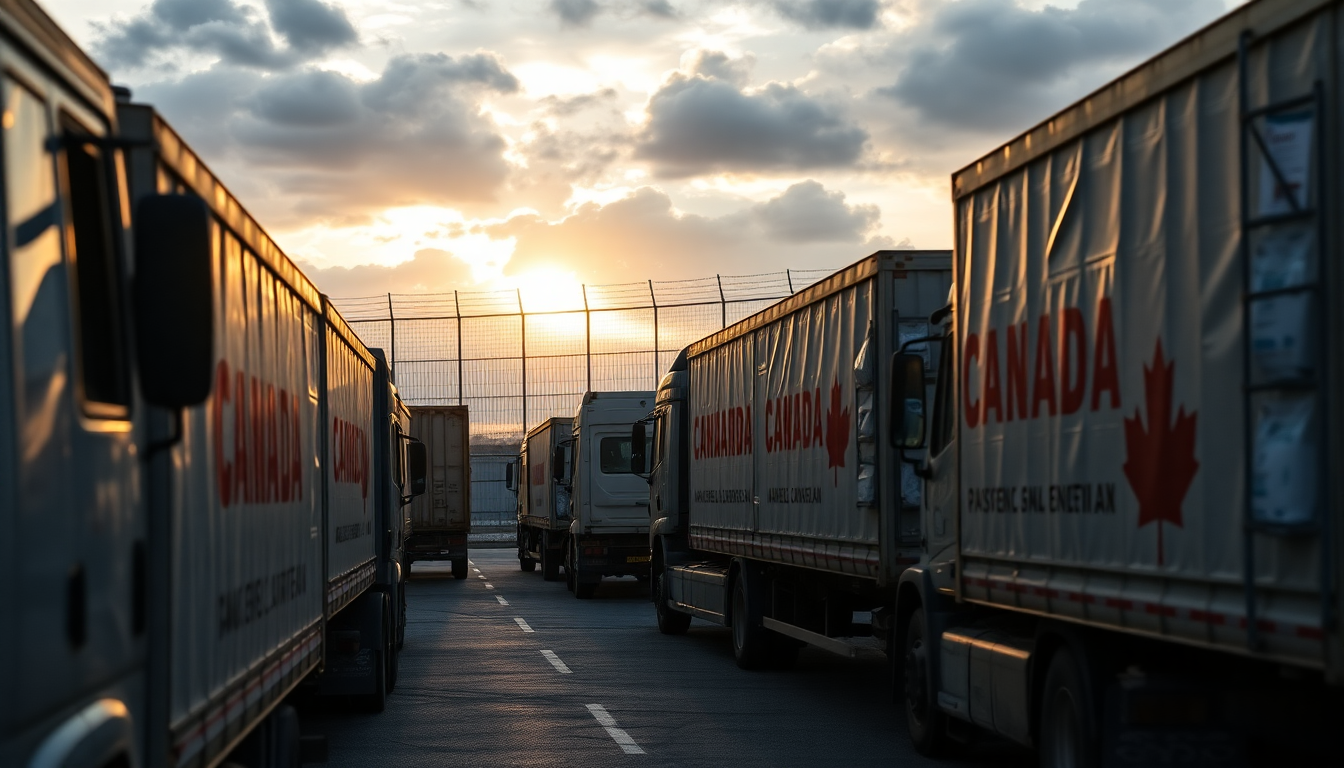Table of Contents
The ongoing humanitarian crisis in Gaza is prompting a global outcry for action, and Canada is stepping up to help. Foreign Affairs Minister Anita Anand has announced that the Canadian government is ready to send trucks filled with essential supplies, just waiting for the green light from Israel to deliver them to the desperate people in Gaza. But this situation isn’t just about aid; it’s a complex web of geopolitical issues that complicate the delivery of much-needed assistance.
Current Aid Situation and Canada’s Position
Minister Anand recently shared some hopeful news: Jordan has allowed Canada to position aid supplies near the Gaza border. This move is crucial because it sets the stage for a faster response once Israel grants access for the aid to enter. In her talks with her Israeli counterpart, Anand stressed the importance of ensuring that Canadian aid trucks can cross into Gaza without any hold-ups.
However, the situation remains tense. Although Israel has announced the creation of humanitarian corridors, the reality on the ground tells a different story. Some aid organizations report that Israel is permitting limited access for aid deliveries, but the actual amount of supplies reaching Gaza is still woefully inadequate. Humanitarian groups are sounding the alarm about dire conditions, with reports highlighting rampant starvation and critical shortages of food and medical supplies.
Adding to the complexity is the scrutiny Israel faces regarding its aid distribution practices. While Israeli officials may downplay claims of starvation, humanitarian organizations argue that the restrictions are worsening the crisis. Striking a balance between ensuring security and delivering humanitarian aid is a delicate challenge that all parties must navigate.
Challenges in Delivering Humanitarian Aid
Delivering humanitarian aid in conflict zones like Gaza is not for the faint of heart. One major concern is ensuring the safety of aid workers and the integrity of the supplies being delivered. The ongoing violence and instability create an environment where aid can be misappropriated or intercepted, which seriously undermines its effectiveness.
On top of that, the intricate political landscape makes logistics a nightmare. Canada, along with other nations, has to negotiate with Israel, which is juggling its own security issues and political considerations. These talks can delay the arrival of critical supplies, making an already challenging humanitarian situation even worse.
As things continue to develop, it’s crucial for international bodies and countries like Canada to advocate for the rights of Palestinians and the urgent need for humanitarian access. This advocacy isn’t just a moral obligation; it’s a necessary step toward alleviating the suffering of those caught in the conflict.
Looking Ahead: The Future of Humanitarian Aid to Gaza
As we look to the future, the outlook for consistent and comprehensive humanitarian aid to Gaza remains uncertain. While Israel has recently committed to facilitating some aid deliveries, ongoing tensions and conflicts can easily derail these efforts. The international community must stay vigilant and proactive in championing the needs of the Palestinian people.
Moreover, Canada’s role in this humanitarian crisis could evolve further. As awareness of the situation grows, there might be increasing pressure on the Canadian government not only to deliver aid but also to engage in diplomatic efforts aimed at addressing the root causes of the conflict. Finding a sustainable solution will require collaboration among various stakeholders, including Israel, Palestine, and international humanitarian organizations.
In conclusion, while Canada is poised to deliver essential aid to Gaza, the tangled political landscape and the urgent humanitarian needs of the population create a challenging environment. Ongoing dialogue and cooperation will be essential to ensure that aid reaches those who need it most. How can we as a global community rise to this challenge and support those in desperate need?


